The Andrée Expedition

1. Prologue (Knut Frænkel)
What was it the Austrian newspaper wrote? “Any man who says he will travel to the North Pole and back in a balloon is either a simpleton, a charlatan or a Swede.” How well we qualified! Young Strindberg, a latter day Don Quixote, risked his life to impress the blue eyed goddess of his dreams. Throughout the journey, he wrote her love letters. But where did he expect to post them, I wonder? Our leader Andrée dreamt only of glory and immortality, already photographed and measured for his waxwork likeness, which would stand in some dusty museum, it’s translucent finger pointing to this journal I now hold in my freezing hands. And I, Frænkel, I measured the winds, and I plotted the stars, and asked myself over and over again: what attracted me to the North, like the trembling needle of a compass?
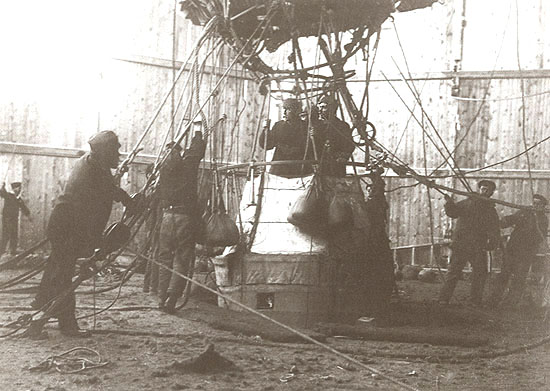
2. The Balloon Rises (Nils Strindberg: Letter to Anna)
“Dearest Anna, It was grand when at last it was determined that we should start. Andrée asked us: ‘Well shall we try it or not?’ Frænkel at first answered evasively, but then said that he should. I answered, ‘I think we ought to try it.’ Andrée was serious and said nothing. Now my thoughts turned to you and to my parents and friends at home. How would the journey succeed? And how fast my thoughts came. ‘Cut away everywhere!’ comes Andrée’s voice. Three knives cut the three lines and the balloon rises, rises amid the cheers of those below. A peculiar sensation, wonderful, indescribable! We still hear the hurrahs at a distance. And then: silent and still. At seven o’clock mists begin. Andrée goes to his berth to rest. A blackbird circles a moment in the distance then disappears in the fog. The sun has gone. Goodnight.”

3. Pride and Ambition (Salomon Andrée: First Journal)
“It is not a little strange to be floating here, floating here above the Polar Sea. To be the first that have floated here, floated here in a balloon. I cannot deny that all three of us are dominated by a feeling of pride. We think we can well face death having done what we have done. Isn’t it all perhaps, the expression of an extremely strong sense of individuality which cannot bear the thought of living and dying like a man in the ranks, forgotten by coming generations? Is this ambition? Dispatch, July eleven, eighteen ninety seven. Four carrier pigeons sent off. We are now in over the ice which is much divided in every direction. Weather magnificent. Best of humor. ANDRÉE STRINDBERG FRÆNKEL.”

4. Dinner Aloft (Nils Strindberg: Letter to Anna)
“Diner du troisième Juillet (for it is I, I who attend to the housekeeping. I.)
Repas pendant le voyage: Potage d’Oseille Hotch Potch,Chateaubriand
The King’s Special Ale, Choc’late with biscuits,
Biscuits with raspberry syrup and plus H2O
A good, invigorating meal! Au r’voir!”
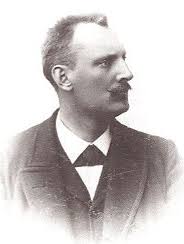
5. The Unforeseen Problem (Knut Frænkel)
Indeed, it was a very good meal, Anna. But your fiancé neglected to mention that it was consumed under what Andrée called: trying circumstances. By the third day of our flight, a steady fine drizzle had deposited more than a ton of ice above our heads. On the webbing that encircled the balloon’s equator, thousands and thousands of icicles formed. Ev’ry fifty meters we paid unplanned visits to the surface, stamping it angrily, like some enraged behemoth, then lurching up into the air, again. Strindberg became seasick and vomited that excellent dinner, while Andrée glared at the fog, attempting to will the enshrouded sun to appear and melt away our glistening crown of thorns.
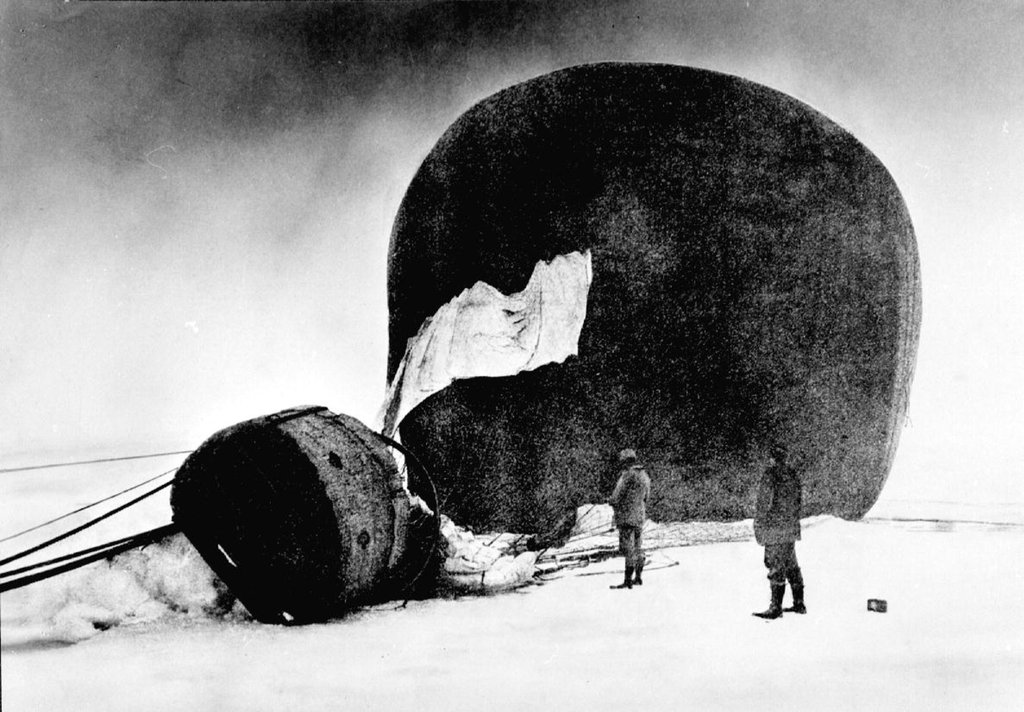
6. The Flight Aborted (Salomon Andrée: First Journal)
“Fog still intense. Ev’rything is dripping. We have not had any sleep or been permitted any rest from the repeated slamming against the ice. We probably cannot stand it much longer. The balloon sways, twists, and rises and sinks incessantly. It wishes to be off but cannot. The rattling of the guidelines and the flapping of the sails are the only sounds heard. No bird is seen or heard and so I suppose there is no land near. Monotonous touch, new touch, another touch… the balloon rose to a great height but we opened both valves and at six twenty nine we were down again. We jumped out of the balloon. Worn out and famished but determined to set out from the point where we now are. On foot.”
PART TWO: ON THE ICE
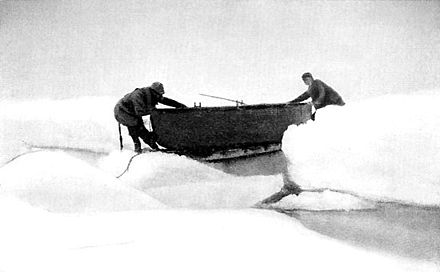
7. Mishap with a Sledge (Nils Strindberg: Letter to Anna)
“Well, now your Nils knows what it is to walk on Polar Ice! We had a little mishap at the start: while crossing from one ice floe to the next, the first sledge went crooked and fell in. I jumped down into the water and held fast the sledge so that it should not sink. It was with difficulty it was saved. Andrée was angry that I’d taken such a risk, since we have two more sledges and provisions enough. Of course, he did not know that in the first sledge is my sack with all your letters and your portrait. Yes, they will be my dearest treasure during the winter. Well, my dear, what will you be thinking all winter? That is my only anxiety. There is much I should write about but now I must sleep. Goodnight.”
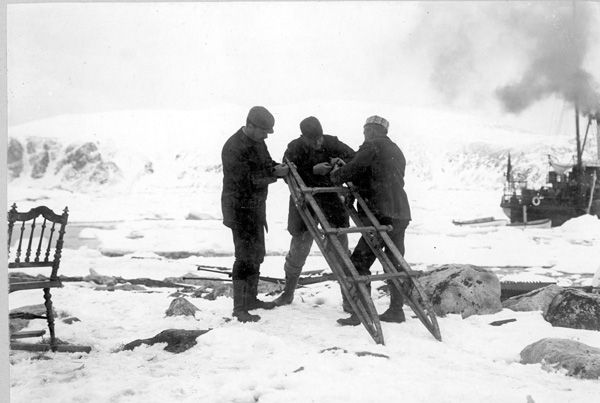
8. The King’s Jubilee (Salomon Andrée: First Journal)
“September eighteen. A beautiful day. The King’s Jubilee. A lucky day for us. We had the Swedish flag hoisted and finished the day with a ceremonial meal. Then with a fine Port, Antonio de Ferrara, eighteen thirty four, given to us by the King himself, we drank the King’s health with Royal Hurrahs and in unison we sang: Du gamla, du frida, du fjällahöga Nord. The general feeling was one of the greatest good cheer and we lay down satisfied and contented. (Ack, jag vill leva, jag vill dö i Norden! Ack, jag vill leva, jag vill dö i Norden!)”
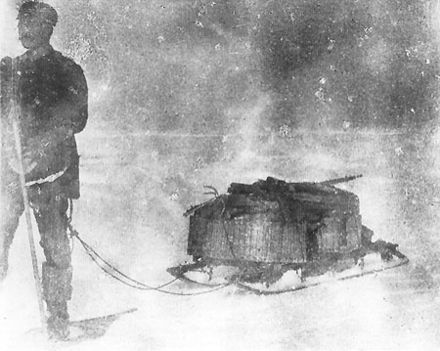
9. Illness and Drugs (Knut Frænkel)
It is hard to believe that Jubilee Day was scarcely a month ago. An observer might have found our patriotic display pathetic: Strindberg was bandaged all over for cuts and boils; my feet were useless and I could no longer pull by sledge; all three of us suffered from cracked lips, a permanent catarrh, noses running constantly, attacks of diarrhoea and cramps… The good doctor Andrée prescribed morphine and opium tablets. We rested: then marched a few more kilometers. More morphine and opium, a few more kilometers. How long did he think the drugs would last?
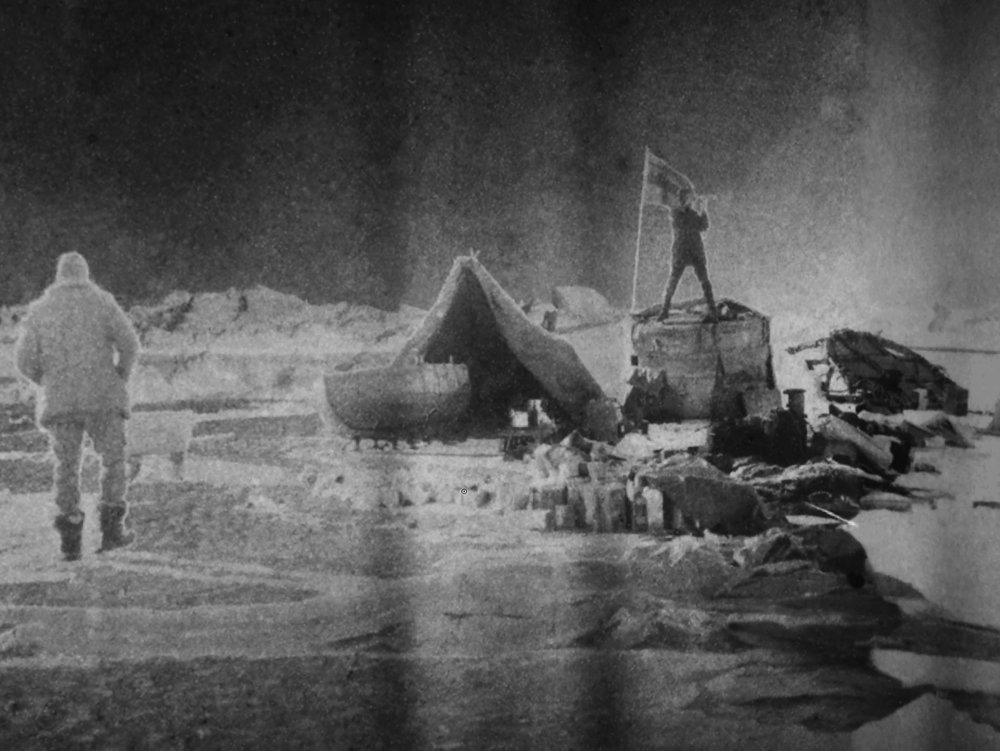
10. Hallucinations (Salomon Andrée: First Journal)
“The day has been extremely beautiful. Perhaps the most beautiful day we have had. Magnificent Venetian landscape with canals between lofty hummock edges on both sides, water square with fountains of ice and stairs down to the canals. Divine. The sun touched the horizon at midnight. The landscape caught fire. The snow an ocean of flame. Divine. We have several times seen a bird, quite black and silent as a spirit. We have not seen it fly but only dive. Silent as a spirit. What kind of bird is it?”
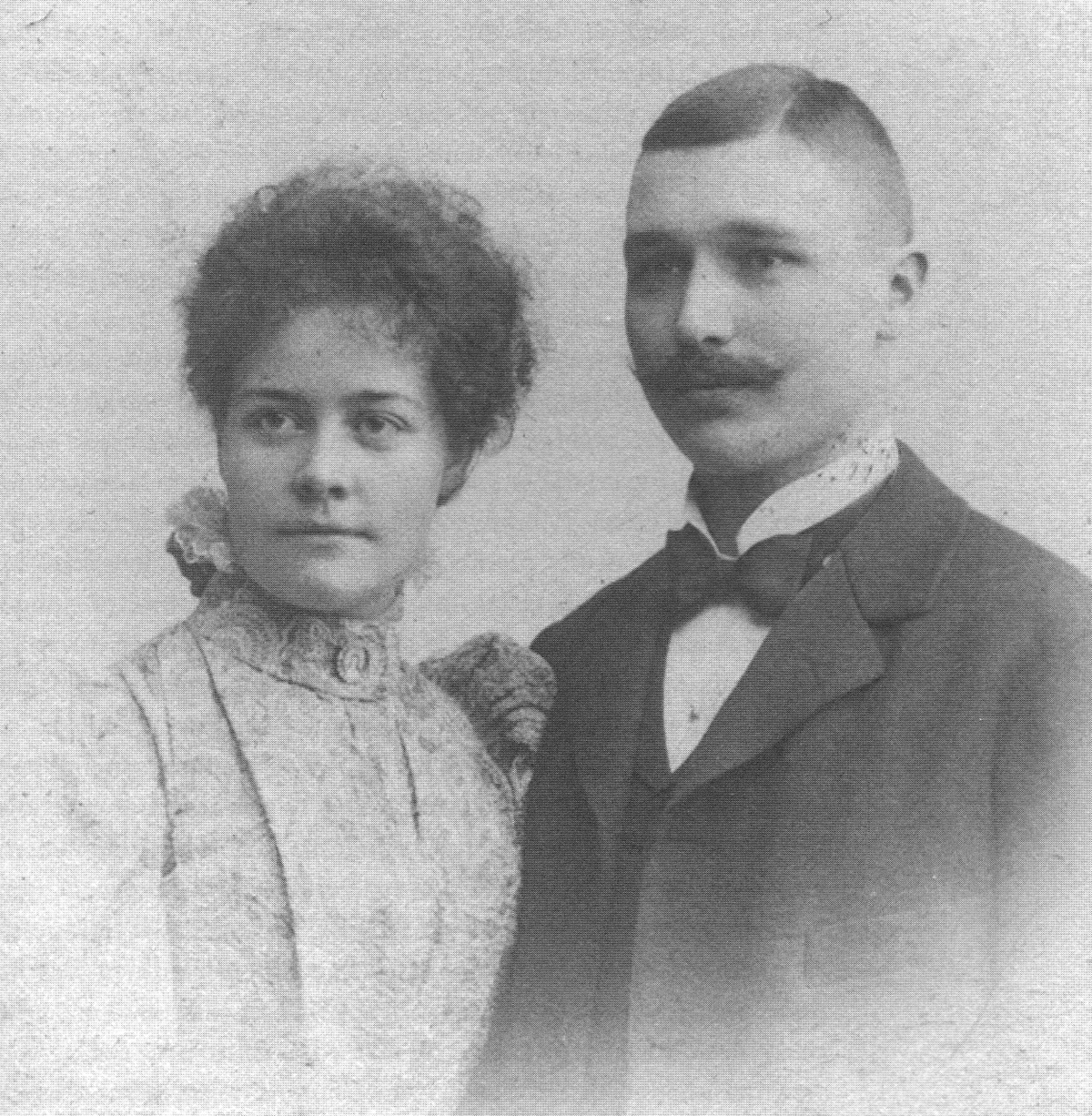
11. Anna’s Birthday (Nils Strindberg: Letter to Anna)
“We have just stopped for the day, after drudging and pulling the sledges for ten hours. I am really rather tired but must first chat a little. First and foremost I must congratulate you, for this is your birthday. Oh, how I wish I could tell you now, Anna, that I am in excellent health and that you need not fear for us at all. We are sure to come home by and by. But it is strange to think that not even for your next birthday will it be possible for us to be at home. And perhaps we shall have to winter here for another year more. We do not know yet. Poor little Anna, in what despair you will be if we should not come home next autumn. And you can imagine how I am tortured by the thought of it too, not for my own sake, for now, I do not mind if I have hardships as long as I can come home at last.”
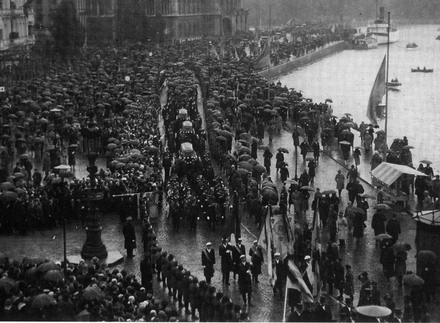
12. Epilogue (Knut Frænkel)
We built our winter house of ice and snow. Andrée christened it: ‘home’. A week later, I buried Strindberg and I fashioned a crude black mourning ribbon to adorn my coat. Poor Andrée, unaware that Strindberg had died, that he himself was dying continued to babble on and on about the next expedition and filled a few more pages in his notebooks. Before long, there bloomed a second ribbon. Next will come my turn and then it all will be concluded. It is clear to me now that Andrée knew from the start that our journey was doomed. And I think I understand what made him persevere to the end: in the years to come, when our frozen bodies have been found and returned home to Sweden, the bright, elusive glory he sought will be his after all. Even Strindberg’s foolish example will, in time, be transformed as a legend for lovers. But I, Frænkel, who measured the winds, I who plotted the stars and asked myself over and over again, I still will not know what attracted me to the North like the trembling needle of a compass. Was it only for this: to perish here, alone, amid the howling winds of an Arctic night, reading and rereading these undeliverable love letters of a simple soul and this already fading journal of a prideful Swede? Was it only for this?
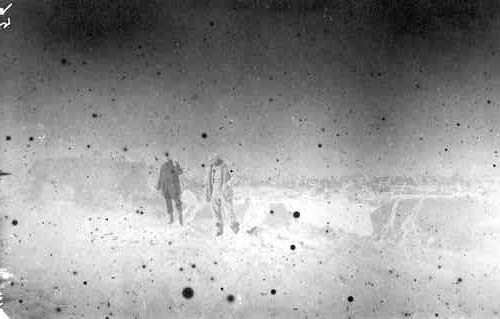
13. Final Words (Salomon Andrée: Second Journal)
“… the middle of the night… shadows on the glacier… the flaming outside… not of innocent white doves… carrion birds… bad weather, we fear… to escape… out to sea… crash… grating… driftwood…”